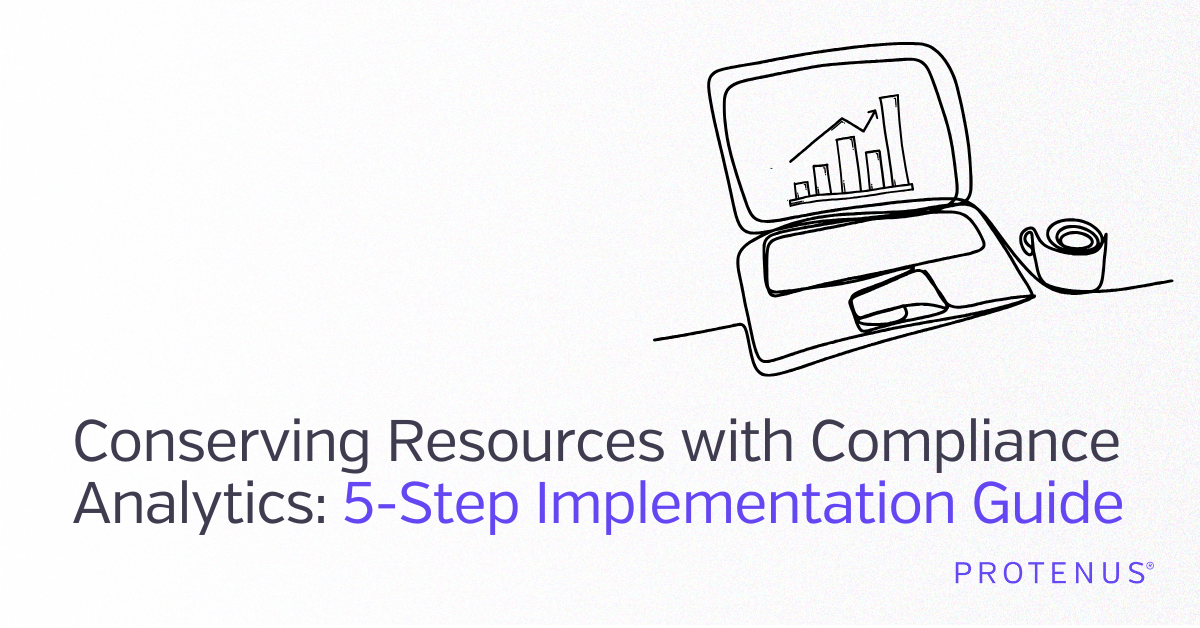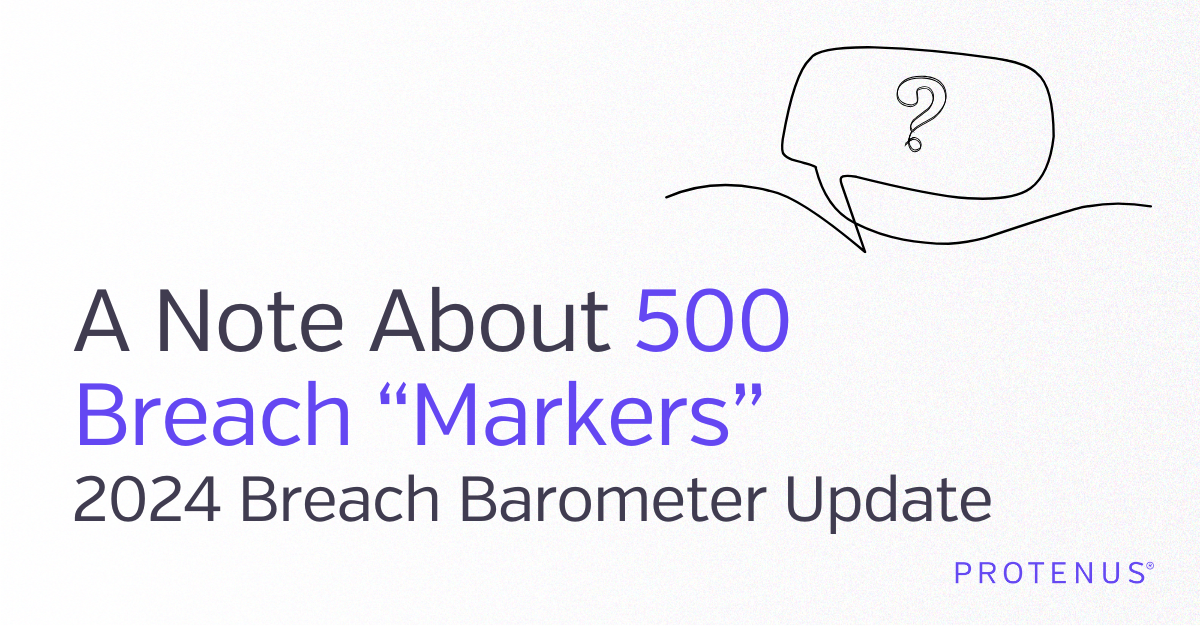Share this

Privacy vs. Policy: Taking a Proactive Approach to Comprehensive Healthcare Compliance
by Michelle Del Guercio on July 11, 2023
Protecting PHI and adhering to regulatory compliance are commonplace in healthcare organizations. But not all access violations are regulatory in nature. All too often, hospital organizations fail to look at the bigger picture impacting unauthorized access to PHI in the form of workforce policy violations, that may still put an organization and its patients at risk, even if not regulatory in nature.
It's no secret that our personal data is more accessible than ever before.
From social media platforms to healthcare records, our private information is out there for the world to see. This is why it's imperative that healthcare professionals take a proactive approach to privacy. Patients trust us to keep their information safe and secure, and it's our responsibility to ensure that we do just that. By implementing comprehensive privacy policies and regularly reviewing them, we can ensure that our patients' information is protected at all times.
In the 2023 Breach Barometer Report, published by Protenus, Patient records affected by insider error "skyrocketed 141%" in 2022. This alarming stat indicates the prevalence of insider threats in healthcare, and should be a wake up call for all healthcare compliance professionals and hospital stakeholders. It's important to note that not all access violations are regulatory in nature. While regulatory compliance is important, it's equally important to be aware of potential insider threats and other access violations that can put patient data at risk.
It's not just about adhering to privacy regulations.
While it's important to protect patient privacy from a regulatory compliance perspective, it's equally important to have policies in place that ensure workforce education to support your organization’s privacy policies - as well as regulatory compliance. As a healthcare professional, it's vital that you take a proactive approach to both internal privacy policy and regulatory compliance monitoring.
Policies must be in place to ensure comprehensive compliance with all healthcare regulations. By taking a proactive approach to policy, we can ensure that you are always in compliance with local, state, and federal regulations. This not only protects your patients but also protects your healthcare organization from potential legal or reputational issues.
The Winning Proactive Solution: Culture and Technology
One of the best ways to approach healthcare compliance is to make it a part of your organization's culture. By making compliance a priority from the top down, everyone in the organization will understand its importance. This includes training and education for all staff members, regular audits, and continuous improvement. It's essential to be proactive and stay ahead of the game when it comes to healthcare compliance.
Hospitals that have implemented AI solutions, such as Protenus Patient Privacy Monitoring, that support and augment their regulatory compliance programs experience greater opportunity to educate workforce on privacy policies, reposition themselves from reactive to proactive in violation occurrences, and support the reputation of a high reliability organization.
Proactive monitoring of patient record access with the use of AI technology can:
- Support comprehensive workforce policy training
- Provide more efficient monitoring and accuracy of investigations
- Decrease privacy violations over time
- Elevate compliance efforts to support regulatory and organizational policies
Now, a random fact related to healthcare compliance: Did you know that in 2020, the Office for Civil Rights (OCR) of the U.S. Department of Health and Human Services settled 14 cases that violated the HIPAA Privacy Rule, resulting in $13.5 million in fines? This just goes to show how important it is for healthcare professionals to take a proactive approach to privacy and policy.
In conclusion, healthcare compliance professionals must take a proactive approach, including the reliance on AI-driven healthcare compliance analytics, to develop a comprehensive program that supports both privacy and policy. By ensuring comprehensive healthcare compliance, you not only protect your patients but also protect your healthcare organization from potential legal and reputational issues. Make healthcare compliance analytics a part of your organization's culture and stay ahead of the game.
1 https://blog.protenus.com/latest-hhs-breach-data-elevates-the-need-for-a-comprehensive-privacy-protection-strategy
Share this
- December 1, 2024 (3)
- November 1, 2024 (1)
- October 1, 2024 (2)
- September 1, 2024 (1)
- August 1, 2024 (1)
- July 1, 2024 (1)
- June 1, 2024 (1)
- May 1, 2024 (1)
- March 1, 2024 (2)
- February 1, 2024 (3)
- January 1, 2024 (1)
- December 1, 2023 (1)
- November 1, 2023 (3)
- October 1, 2023 (3)
- September 1, 2023 (1)
- August 1, 2023 (1)
- July 1, 2023 (2)
- April 1, 2023 (1)
- March 1, 2023 (1)
- February 1, 2023 (1)
- December 1, 2022 (3)
- November 1, 2022 (3)
- October 1, 2022 (1)
- September 1, 2022 (1)
- August 1, 2022 (2)
- June 1, 2022 (4)
- May 1, 2022 (5)
- April 1, 2022 (1)
- March 1, 2022 (4)
- February 1, 2022 (3)
- November 1, 2021 (2)
- October 1, 2021 (3)
- September 1, 2021 (3)
- August 1, 2021 (3)
- July 1, 2021 (4)
- June 1, 2021 (2)
- May 1, 2021 (2)
- April 1, 2021 (2)
- March 1, 2021 (5)
- February 1, 2021 (1)
- January 1, 2021 (1)
- December 1, 2020 (1)
- November 1, 2020 (2)
- October 1, 2020 (2)
- September 1, 2020 (3)
- August 1, 2020 (2)
- July 1, 2020 (2)
- June 1, 2020 (6)
- May 1, 2020 (3)
- April 1, 2020 (4)
- March 1, 2020 (2)
- February 1, 2020 (4)
- January 1, 2020 (2)
- December 1, 2019 (2)
- November 1, 2019 (1)
- October 1, 2019 (1)
- September 1, 2019 (1)
- August 1, 2019 (1)
- June 1, 2019 (1)
- April 1, 2019 (1)
- February 1, 2019 (1)
- January 1, 2019 (1)
- December 1, 2018 (2)
- November 1, 2018 (2)
- October 1, 2018 (2)
- September 1, 2018 (3)
- August 1, 2018 (1)
- July 1, 2018 (2)
- June 1, 2018 (2)
- May 1, 2018 (1)
- April 1, 2018 (1)
- March 1, 2018 (2)
- February 1, 2018 (6)
- January 1, 2018 (2)
- September 1, 2017 (2)
- August 1, 2017 (2)
- June 1, 2017 (2)
- May 1, 2017 (1)
- April 1, 2017 (1)
- March 1, 2017 (2)
- February 1, 2017 (5)
- January 1, 2017 (2)
- December 1, 2016 (3)
- November 1, 2016 (5)
- October 1, 2016 (4)
- September 1, 2016 (8)
- August 1, 2016 (4)
- July 1, 2016 (4)
Subscribe by email
You May Also Like

Conserving Resources with Compliance Analytics: A 5-Step Implementation Guide

FAQ Video Series: Enhancing Your Privacy Program with Protenus Professional Services


